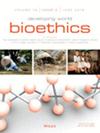Research ethics committees (RECs) have played a crucial role in expediting the review of research protocols amidst the COVID-19 pandemic. To improve their performance and identify areas of enhancement, a multicentric study was conducted in India by the Forum for Ethical Review Committees in the Asian and Western Pacific Region (FERCAP). The study aimed to evaluate the preparedness of Indian RECs during the COVID-19 outbreak while conducting protocol reviews and comprehend the challenges they encountered. After obtaining ethics committee approval, a cross-sectional observational study was conducted using two validated questionnaires, one for REC member secretaries/chairpersons and another for REC members. The questionnaires consisted of 13 multiple-choice questions, 10 yes or no questions, and 2 open-ended questions each. The study was distributed to multiple RECs. A total of 109/200 participants, including 13 REC member secretaries, 12 chairpersons and 84 REC members from a total of 34 REC's, consented to participate in the study. During the COVID-19 pandemic, 23/25 (92%) of the RECs conducted online meetings. The most common challenges faced by RECs included risk-benefit analysis (12/25 RECs), review of informed consent (12/25 RECs), and protocols involving vulnerable populations (10/25 RECs). 65% of the REC members reported the need for ethics review training, and 66/84 REC members agreed or strongly agreed that RECs require training in COVID-19 protocol review. Additionally, 62/84 REC members agreed or strongly agreed that central/joint RECs should review multicenter COVID-19 protocols. RECs in India encountered difficulties while reviewing risk-benefit analyses, informed consent documents (ICDs), and COVID-19 protocols and they suggested providing training on these topics.


